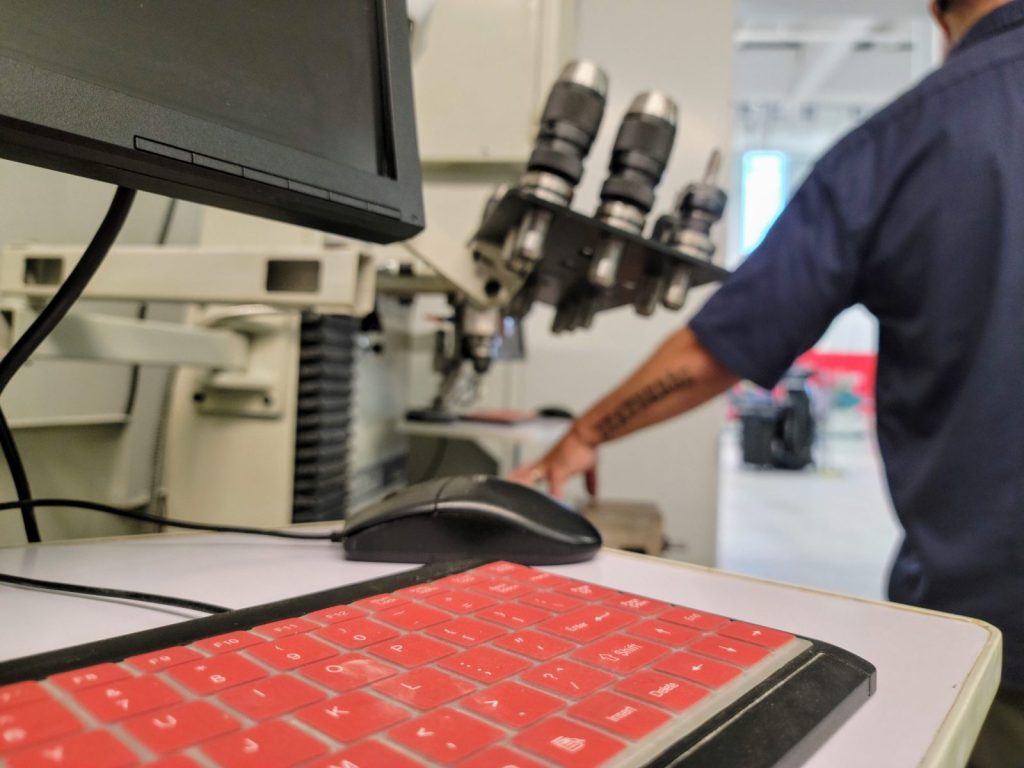A tattoo training course for prisoners usually raises eyebrows when Valerie Moseley mentions it.
When an incarcerated person finishes the training, they receive a certification that allows them to work in a tattoo parlor after their release. Moseley, the director of the Missouri Department of Corrections’ division of rehabilitative services, said cover-ups usually draw people to the program.
“When we start thinking about helping people to be employed after release, it’s important to help them cover up tattoos they might regret,” Moseley said. “Ultimately, people who take that course end up with a tattoo license, and that can help them enter a field with an acceptance of different backgrounds.”
The course was mentioned during an Inside the Issues program held June 29 at the Springfield Area Chamber of Commerce. Moseley and Anne Precythe, director of the Missouri Department of Corrections, spoke about the services offered to prisoners that prepare them for release.
People re-entering the workforce are a valuable resource for businesses struggling to find employees, Precythe said. Thursday’s session was focused on what the Department of Corrections does to prepare those future workers.
“You already have a workforce in the community that needs jobs,” Precythe said. “You have about 5,000 or 6,000 under supervision in the Springfield area. We wanted to share what’s happening inside our prisons as people prepare to come home.”
The session drew interest from a wide range of people, including officials with Missouri State University and Ozarks Technical Community College, as well as Springfield Mayor Ken McClure, a representative from Gov. Mike Parson’s office and a handful representing chamber member-businesses.

Training includes trades, culinary arts and computer technology
The tattoo certification program is one of 14 areas that male prisoners can receive training in, including welding and building trades, culinary arts, HVAC repair, applied computer technology and telecommunications. The programs are held at Missouri’s nine correctional facilities; according to the department, the courses have seen a 69 percent success rate among 275 students.
Seven such courses, including programs in certified nursing assistance, culinary arts, customer service and cosmetology are available for female prisoners in Missouri’s two women’s facilities. Those programs have seen 75 students with a success rate of 76 percent, according to materials Precythe and Moseley presented.
Those training courses represent a number of services the department offers as part of its involvement with Reentry 2030, a national effort to improve such services.
The goal is to eliminate as many barriers as possible for released prisoners, who face a number of challenges obtaining basic necessities that other citizens may take for granted. Precythe said basic things, such as getting a Social Security card, finding a place to live and getting a job, can present a number of hurdles for released prisoners.
The department has shifted its timeline, Precythe said, for thinking about re-entry. Instead of waiting until a release date gets close, department officials want prisoners thinking about re-entry much more often.
Focusing on life after prison starts Day 1
“Re-entry begins the day they get off the bus,” Precythe said. “They have to have hope about life after incarceration, and it’s our job to help them figure out what that looks like.”
Precythe said with so much going inside prisons, the department has placed a priority on telling people outside of them. Part of the re-entry effort involves increasing their collaborations and partnerships with other organizations.
That list of organizations includes other state departments, which have a number of jobs available, Precythe said. Departments such as MoDOT, Health and Senior Services, Economic Development, Revenue and Labor are facing many of the same hiring challenges as the private sector.
Part of that effort involves working with parole officers so a released prisoner’s newfound employment is not jeopardized by disruptive parole requirements, Precythe said.
Precythe said that this conversation about re-entry is one of the first they have had with a chamber of commerce — the Springfield chamber reached out to the corrections department, she said.
In response to a question about what else the department needs, Moseley said that the quick answer to that is more conversation.
“What we need is a bigger conversation outside of this room,” Moseley said. “We want to talk about resources and partnerships, what you do and how that can translate in a successful way.”

